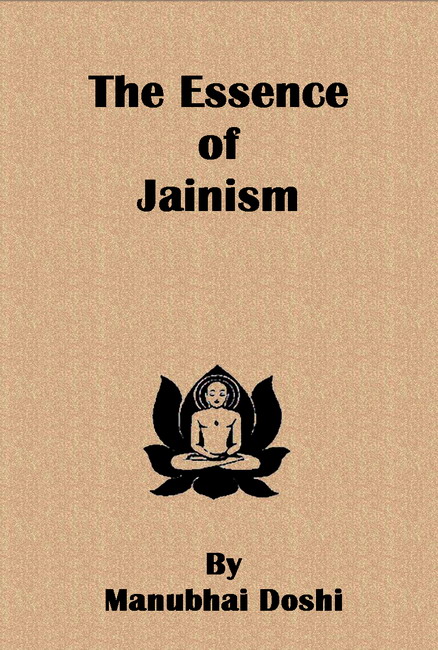We have dealt with Jiva and Ajiva in the last chapter. Now we are taking the next two fundamentals, viz. Punya that can be earned by meritorious or virtuous deeds and Paap that is acquired by evil or vicious acts.
As long as soul is embodied, it does indulge in some or other activity. This activity may be physical or mental or both. It is possible that a person may refrain from physical activity for some time. His mental apparatus however never rests. It functions even when he rests or undergoes sleep. Every activity involves Karma and he has to bear consequences thereof sooner or later. If one undertakes meritorious activity, he earns Punya or Shubha (wholesome) Karmas; if he indulges in evil activity, he acquires Paap or Ashubha (unwholesome) Karmas. Depending upon the intensity and accumulation of wholesome Karmas, one may be blessed with happy and comfortable situations like handsome and strong or beautiful and graceful body, good health, attractive and loving spouse, children to be proud of, wealth, amenities etc. Unwholesome Karmas on the other hand would result in unhappy and miserable situations like ugliness, illness, quarrelsome and wicked spouse, issuelessness or vicious issues, poverty etc. It is therefore generally accepted that everyone should try to undertake meritorious activities and refrain from evil ones.
Many of the physical activities are evidently good or bad. Organized societies therefore endeavor to encourage beneficial or virtuous activities and to discourage the wicked or vicious ones. There may also be legal provisions to forbid some of the manifestly wicked activities so as to maintain peace and order within the society. Some of the activities however cannot be clearly labeled as good or bad. In spiritual field the intention, with which and the disposition in which an activity is undertaken, play s an important role in deciding whether it would attract wholesome or unwholesome Karmas. Let us examine this aspect with the help of illustrations. A burglar, for instance, comes across a person whom he wants to rob. He therefore fatally stabs the person. On the other hand, a patient with tumor in stomach is advised to undergo surgery. He therefore goes to a surgeon who opens his belly with the surgical knife. Unfortunately for the patient, the tumor is in too advanced stage or there are other complications. Consequently, the patient dies at the opening of the belly. In both these cases a person hurts the other person with a knife and that other person dies. Does it mean that the burglar and the surgeon would attract the same type of Karma? Obviously not. The burglar’s activity is evidently sinful, while that of the surgeon can be treated as meritorious.
Let us take a finer case. Suppose, Suresh and Raman, two young pupils of the same preceptor are going from one place to another. On the way they come across a river that is flooded. On the bank of the river, there is a beautiful young girl intending to go across but scared of too much water. Realizing her anxiety, Suresh offers his hand and leads her into water. Watching this, Raman screams, but Suresh ignores his screams and goes ahead. Flow of the river gets swifter causing the girl to drift. Suresh therefore holds his hand around her waist and leads her ahead. For Raman this act of Suresh is beyond imagination and he severely reproaches Suresh for his audacity. Suresh again ignores his objection. Water gets deeper ahead. The girl does not know how to swim. Suresh therefore carries her on his back and swims across the river. This is too much for Raman who abuses Suresh like anything for gross violation of the vow of celibacy. Suresh does not respond any way. He leaves the girl on the other bank and silently proceeds ahead with his colleague. On the way, Raman rebukes him again and again for what he had done and warns him of the dire consequences at the hands of the preceptor. Suresh maintains silence while reproaches of his friend continue unabated. After listening for one hour Suresh points out that he had left the girl one hour back, while Raman was still holding her in his head.
It would be evident that in this case Suresh had no intention aside from helping a girl in crossing the river. While holding her hand or while carrying her on his back, he had no other motivation. Therefore he left her as soon as he reached the other bank. In all probability he even did not look at her beauty. For him, she was simply a person who was in need of help. He rendered it while retaining unimpassioned attitude throughout. Raman’s attitude was totally different. Though he did not even touch the girl, he was thrilled by the imaginary sensation of close contact of a beautiful girl. In the heart of his heart he longed to have a feel of her beauty. He did not actually do so simply because it was forbidden. In the spiritual sense he therefore committed sin of indulging in undesirable activity, while Suresh earned the Punya of helping a person in need. Thus Paap and Punya are to be conceived in relative terms and more often than naught they depend upon one’s mental attitude in a given situation.
Concepts of Punya and Paap are more or less identical with most of the religions. The latter concept is however more subtly treated by Indian philosophies. They take into consideration not only the actual act but also the intention behind it. They are unanimous in adoring the meritorious intentions and activities and in condemning the sinful ones. In a major respect however Jainism differs from others in its approach to Punya or meritorious activities. As explained above, one may obtain material happiness and comforts as a result of wholesome Karmas, but what after that? Material happiness does come to an end and comfortable situations do not last forever. One has therefore to undergo miseries at the expiration of Punya Karmas, unless he has earned other Punya Karmas meanwhile. This earning of new Punya Karma while enjoying the fruits of earlier ones is known in Jain terminology as Punyanubandhi Punya or wholesome Karmas motivating further wholesome activities.
Very few persons fall within the category of Punyanubandhi Punya, because most of the persons get infatuated by the happiness and comforts. By virtue of the infatuation they indulge in unwholesome activities. This type of Punya is known as Papanubandhi Punya or wholesome Karmas leading to unwholesome activities. Misery is thus destined for them in the end. How can one avoid this situation? If the objective is to attain liberation, one has to avoid all sorts of Karmas. There is no other alternative. In ultimate analysis, Jainism therefore lays down avoidance of wholesome Karmas as well.
Paap Karmas or unwholesome Karmas are also considered of two types. As consequence of operative Paap Karmas a person does undergo varying degrees of miseries. If however that person realizes that his miseries are the consequence of his previous Karmas, he may like to stay unaffected and bear the miseries with a sense of detachment and objectivity. He may therefore undergo the pain of the miseries with equanimity and meanwhile try to undertake the best possible activities. This attitude would earn to him Punyas. His operative Karmas are therefore known as Punyanubandhi Paap or unwholesome Karmas motivating wholesome activities.
On the other hand, most of the people undergoing miseries blame someone else or some extraneous factors for causing the miseries. They therefore indulge in anger, jealousy, enmity etc. and react violently or wrongly to the pain and miseries obtained by them. Thus they acquire new unwholesome Karmas or Paap. The current Paap Karmas of such persons are therefore known as Paapanubandhi Paap or unwholesome Karmas leading to further unwholesome Karmas.
The wholesome as well as unwholesome Karmas cause bondage to which soul gets chained. If unwholesome Karmas are shackles of iron, wholesome ones are those of gold. Both of them come in the way of soul’s liberation and are to be avoided as such. This can be done by cultivating sense of detachment in all possible situations, favorable as well as unfavorable. No situation lasts forever and every conceivable situation comes to an end sooner or later. Why then get infatuated or feel miserable in a situation which is ephemeral? If a person stays tuned to such detached attitude and maintains equanimity, he does not attract new Karmas. His earlier Karmas would steadily drip off as he bears their consequences. In due course he would therefore shake off all Karmas. As such, he proceeds on the path of liberation. Unfortunately however it is not possible for a worldly soul to stay continuously tuned to its true nature very long. The Seers have stated that no one can continuously concentrate on any object more than two Ghadies or 48 minutes. Beyond that time the attention of the aspirant gets diverted. Thus after staying tuned to true nature, the attention reverts to other aspects. During periods of such reversals a person may better be involved in wholesome activities instead of indulging in unwholesome ones. Therein lies the preference of Punya Karmas over Paap Karmas.
 Manubhai Doshi
Manubhai Doshi
